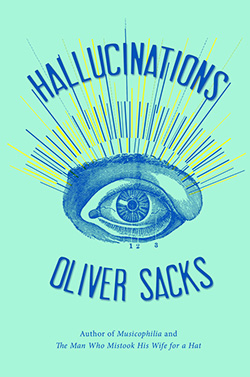 | |
| Author | Oliver Sacks |
|---|---|
| Language | English |
| Subject | Neurology, psychology |
| Publisher | Knopf/Picador, a division of Random House |
Publication date | 6 November 2012 |
| Publication place | United States |
| Pages | 352 (First edition) |
| ISBN | 978-0-307-95724-5 |
| OCLC | 769425353 |
| Preceded by | The Mind's Eye (2010) |
Hallucinations is a 2012 book written by the neurologist Oliver Sacks. In Hallucinations, Sacks recounts stories of hallucinations and other mind-altering episodes of both his patients and himself and uses them in an attempt to elucidate certain features and structures of the brain [1] including his own migraine headaches. [2]